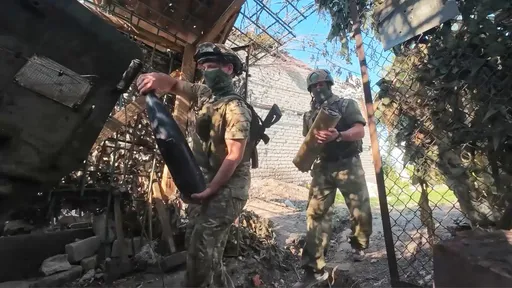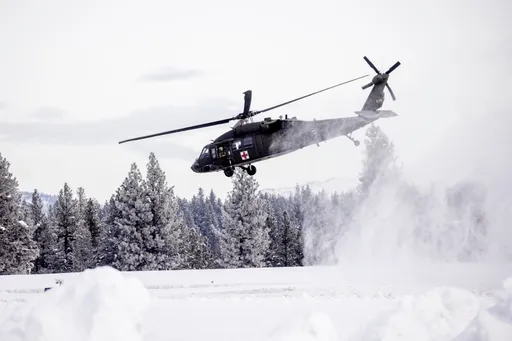The annual African Union (AU) summit began on Sunday in Ethiopia as the continental body aims to play a more prominent role in current conflicts across the continent.
The heads of African states will be attending two days of talks under the theme of ‘Silencing Guns’.
Before we get into the promises from this year, let’s take a look at what the last year was like for the African Union under Egyptian President Abdel Fatah el Sisi.
Military over democracy
South African President Cyril Ramaphosa at the beginning of the summit assumed the one-year revolving presidency of the AU from Egypt’s President Abdel Fattah el Sisi, whose presidency sparked controversy.
Sisi’s horrific human rights record at home raised more questions than answers about the AU’s commitment to democratic values and human rights on the continent.
The former general overthrew the first democratically elected government in Egyptian history in 2013 and Sisi’s security forces are held responsible for the Rabaa Massacre which took place in August and killed at least 900 civilians.
Sisi’s authoritarian rule has led to widespread human rights violations, and he has consolidated power with a bill to extend his rule, potentially until 2034.
His approach, which was made clear when he was chosen as the chairman of the union, prioritised security over democratic reforms across the continent.
Sisi's tendency towards military-based rule over civilian administration became apparent when Sudan's long-time dictator Omar al Bashir was ousted by a military coup that followed by sustained nationwide protests.
Last June, the AU suspended Sudan's membership after the military killed more than 100 civilians amid negotiations between the military that took over from Bashir, and the civilian bloc who had protested for months for democratic rule.
The Peace and Security Council imposed the suspension "until the effective establishment of a civilian-led" transnational authority.
The body took a committed stance to refuse to recognise the military coup and further isolate Sudan's military council to hand over power to civilians.
The council gave the military leaders a deadline to step aside, within 15 days.
However, despite the council's attempts to uphold the Sudanese people's democratic aspirations, Sisi prioritised the military's rule in Sudan.
By lobbying other African states on behalf of the isolated Sudanese military and sustaining pressure on the African Union, he succeeded in extending the deadline which gave Sudan's military council an extra two months - a move that undermined the union's role as a promoter of democratic principles on the continent.
As the AU managed to meditate deal between civilian and military putschists, Sisi as a chairman of the union left a legacy of helping a military regime take root in Sudan setting back the country's process to democratisation.
Silencing Guns as a path to development
Seven years ago, amid extravagant celebrations marking the African Union's 50th anniversary, the African leaders declared they would "end all wars in Africa by 2020".
However, as the leaders gathered in Addis Ababa on Sunday under the theme 'Silencing the Guns', there is little question that they fell well short of their goal.
Despite some relative success in finding diplomatic solutions to crises in Sudan and the Central African Republic, long-running conflicts in Libya and South Sudan are now joined by new crises from the fringe of the Sahel to Mozambique, and from Nigeria to Somalia.
In remarks to African foreign ministers ahead of the summit, AU Commission Chairman Moussa Faki Mahamat painted a bleak picture of the continent's security situation, citing extremist threats stretching from the Sahel to Somalia.
The "missed deadline" to silence the guns, he said, "reveals the complexity of the security situation in Africa".
New chairman, Ramaphosa said in his speech, South Sudan and Libya — the North African country mired in chaos since the 2011 Nato-backed uprising that killed dictator Moammar Gaddafi — would be a key focus during his time.
The union sent Republic of Congo officials as its representatives to the Berlin summit, where Libyans and their international backers gathered around the table for negotiations.
But ahead of the conference, AU officials repeatedly complained that the African Union has consistently been ignored, and the conflict has spilt the entire Sahel, plunging the entire region into a war zone.
The AU has been overshadowed by Europe, which sees Libya as an urgent crisis fuelling migration and transnational crime, says Shewit Woldemichael, a researcher at the Institute for Security Studies.
"Libya…has been framed as a crisis unfolding on Europe's doorstep, requiring a hands-on response by European countries," Shewit said.
South Sudan is another long-running conflict in the continent.
The world's youngest nation plunged into a civil war in 2013 soon after independence. It has left 380,000 people dead and millions more in poverty and facing starvation.
Representing rival tribes, President Salva Kiir and rebel leader Riek Machar have to form a power-sharing government by February 22, the deadline, but they have already missed two previous deadlines to settle their differences.
On Saturday, in an effort to jumpstart mediation efforts, Ramaphosa met separately with both South Sudanese leaders.
The rivals then met face to face on Sudan, but they failed to make progress on the question of the number of regional states and their borders, a crucial stumbling block in the negotiations.
Despite the internal differences and approaches amongst the members of the AU, the continental body sees resolving the conflicts as key to the development of Africa.
"We will focus our efforts on conflict resolution across the African continent, especially those experiencing protracted conflict," Ramaphosa said.























